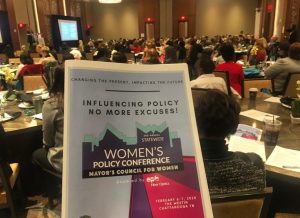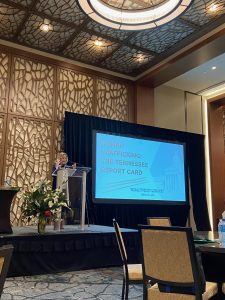Social workers understand that human rights and social justice, as well as social welfare and services, are mediated by policy and its implementation at the federal, state, and local levels. Social workers understand the history and current structures of social policies and services, the role of policy in service delivery, and the role of practice in policy development. Social workers understand their role in policy development and implementation within their practice settings at the micro, mezzo, and macro levels and they actively engage in policy practice to effect change within those settings. Social workers recognize and understand the historical, social, cultural, economic, organizational, environmental, and global influences that affect social policy. They are also knowledgeable about policy formulation, analysis, implementation, and evaluation.
Social workers:
- Identify social policy at the local, state, and federal level that impacts well-being, service delivery, and access to social services.
- Assess how social welfare and economic policies impact the delivery of and access to social services.
- Apply critical thinking to analyze, formulate, and advocate for policies that advance human rights and social, economic, and environmental justice.
- Assess and respond to the political, resource, and technology environments that shape policy practice to effectively advocate for social and economic justice.
Policy is needed in the field of social work in order to create significant change within systems. Policy can be addressed from a macro perspective but it affects many individually. Social workers must be aware of the changes policies can inflict on a population. Policy affects everyone and being a social worker means that I must keep up with the positive and negative outcomes that these policies may cause on my practice. I believe I may have trouble recognizing groups of people that are underserved. I acknowledge that I can be bias but as a future service provider I cannot pick and choose who I want to serve. I have been addressing this issue by taking on tasks I would not normally accept. For example, at my internship (CRHC) I have completed assessments with clients who have a violent criminal background. There are many policies that interfere with rehabilitating this population back into society. I as a future social worker must put my biases aside and attend to these groups of people who are marginalized in society.
Academic Evidence:
In November 2021, I researched the George Floyd Policing act of 2021. The Black Lives Matter movement helps fight discrimination towards people of color. This movement is something I am passionate about and emphasize attention to any chance I get. This policy brief focuses on how changes can be made to address police brutality towards minorities. This policy hopes to hold law enforcement accountable for misconduct in court, improve transparency in data collection, and reform police training and policies. I incorporated empirical research that supports my recommendations to improve this policy. I also describe the strengths and limitations of this policy from a social work perspective. This policy brief required in depth research and helped me strengthen my skills to identify the effectiveness towards the population it targets.
Policy Brief_George Floyd Policing Act 2021
Field Evidence:
Below you will find a policy brief made by HUD (Department of Housing and Urban Development) on the Opening Doors: Federal Strategic Plan to Prevent and End Homelessness presented by the United States Interagency Council on Homelessness in June, 2015. Before starting my internship at the Chattanooga Regional Homeless Coalition, I read over this policy brief to familiarize myself with how the Coordinated Entry System is addressing homelessness. The Coordinated Entry System is something I currently use to help prioritize the clients based on need. The policy brief explains how the Coordinated Entry System can be used to serve populations like victims who are fleeing domestic violence and people who are at risk of homelessness. This policy brief helped me understand how policies can help hold agencies accountable in their efforts in addressing homelessness.
Coordinated Entry Policy Brief
Other Evidence:
3. In February 2022, I attended the Women’s Policy Conference: Mayor’s Council For Women in Downtown, Chattanooga alongside my peers, Justin Odle (left) and Seth Bermudez (right). There were topics like healthcare, human trafficking, and homelessness that were addressed from a policy lens. There were many professional present from various agencies like United Way and Unfi-Ed. This conference was specifically catered to how policies affect women in Tennessee. In a republican conservative state, I was able to experience how social workers can come together and create systematic change. This was an empowering conference that informed me how to advocate for women who are governed by a system that does not cater to them.
In this conference, I joined a breakout room titled “Empowerment: To be Seen is to Succeed”. This section was hosted by Kim Shumpert, Exec. Director, Chattanooga Women’s Leadership Institute. In the room full of professionals, we familiarized ourselves with the daily life of a single mother in poverty through an activity. We had to identify the pseudo clients obstacles in breaking their cycle of poverty. After identifying the main factors, we all discussed intervention methods that may help her and the policies that need to be adjusted to help real clients who are in similar situations. I learned that in order to change policies, social workers need to understand how society is treating our clients and the struggles they go through to survive. This allows us to advocate for our clients with data to support our cause.



